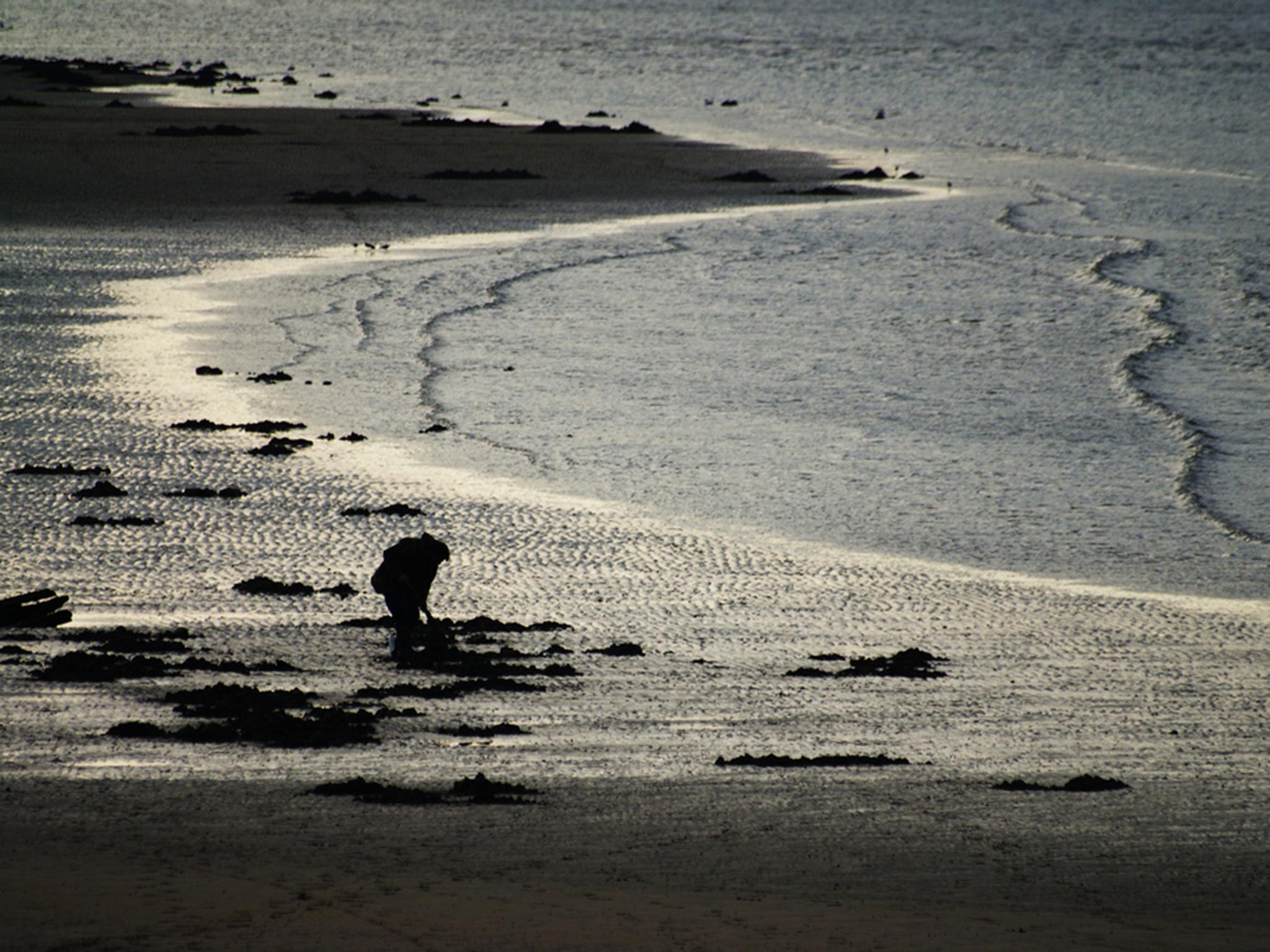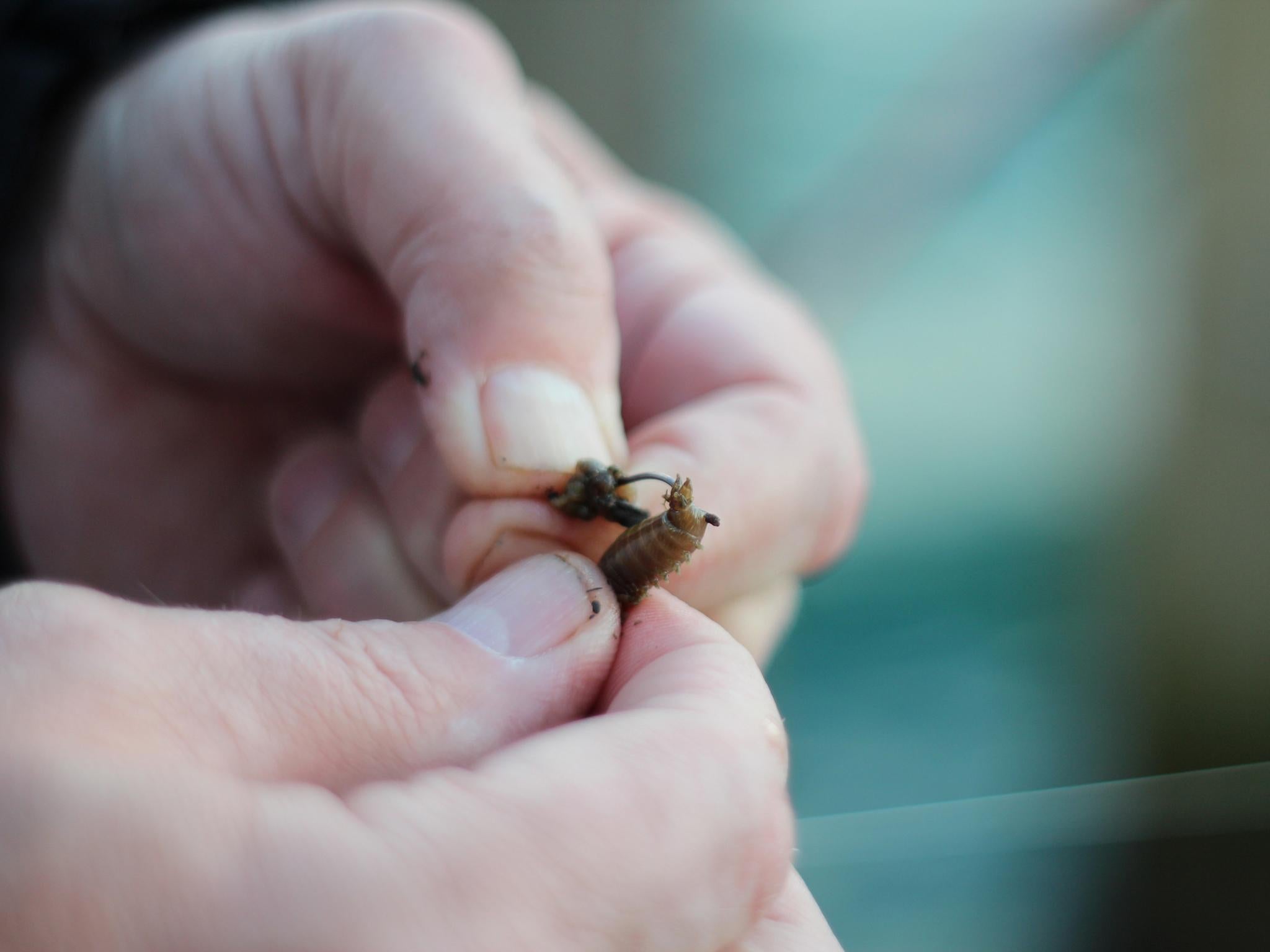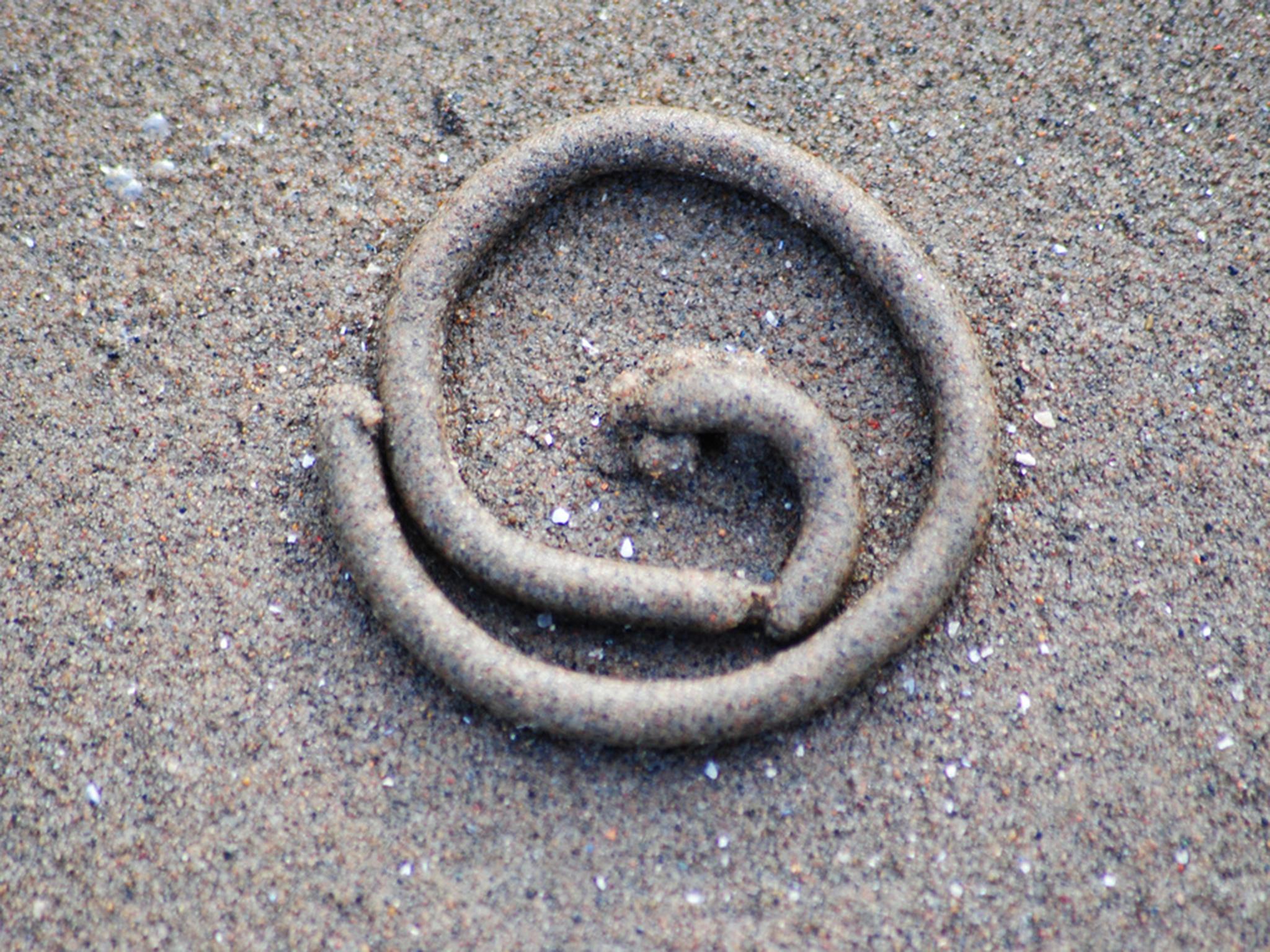The early bird catches the worm to sell for billions
America has made a multi-billion dollar industry out of selling ragworms for fishing bait, resulting in marine worms becoming the most valuable item to come out of the sea. But the UK missed the boat and is now struggling to ban anglers digging their own worms

Your support helps us to tell the story
From reproductive rights to climate change to Big Tech, The Independent is on the ground when the story is developing. Whether it's investigating the financials of Elon Musk's pro-Trump PAC or producing our latest documentary, 'The A Word', which shines a light on the American women fighting for reproductive rights, we know how important it is to parse out the facts from the messaging.
At such a critical moment in US history, we need reporters on the ground. Your donation allows us to keep sending journalists to speak to both sides of the story.
The Independent is trusted by Americans across the entire political spectrum. And unlike many other quality news outlets, we choose not to lock Americans out of our reporting and analysis with paywalls. We believe quality journalism should be available to everyone, paid for by those who can afford it.
Your support makes all the difference.Which global industry is worth almost £6bn? That’s correct, it’s worms. For fishing. And which country appears to have let the market wriggle through its fingers? Right again. We have. Ragworm, which is one of the most effective sea-fishing baits, can sell for up to £36 per kilo through specialist bait suppliers – that’s around twice the high street price of a lobster.
According to Gordon Watson, a marine ecologist at the University of Portsmouth – who co-authored a recent study in the journal Fish and Fisheries – there are 121 tonnes of polychaete (marine worms such as ragworm, lugworm and bloodworm) landed around the world every year – with a market value of £5.9bn.
The explosion in the sea bait industry is thanks, in part, to our desire for sustainable fishing following concerns over depleting stocks of cod and plaice and the wasteful practice of “factory farm” trawler-based fishing.
Line-caught fish is the preferred option, being more sustainable than net-trawling and, according to organisations such as Greenpeace, it results in a healthier and tastier catch. Ragworm are the prime choice for line-fishing, being wriggly little things that do the business in attracting the big fish. They’re hugely prevalent along practically all of the British coastline, burrowing into sand and mud on beaches. Which, you’d think, would make the UK very well placed to capitalise on this worldwide industry – well, around 15 years ago it probably would have been.
Commercial marine worm farming was on the brink of being big business in the UK. Then it all just suddenly stopped. One of the most ambitious projects was Seabait, in Northumberland, which used “waste” heat from the nearby Lynemouth power station to breed and grow industrial quantities of bait worm.

Developed by Peter Olive and Peter Cowin of Newcastle University’s School of Marine Science and Technology, the company was set up in 1985 – by 2003 it had won two Queen’s Awards for enterprise, had a subsidiary plant in Maine, Massachusetts – another big marine worm centre – and was producing millions of worms each year, with exports accounting for 70 per cent of its business.
In addition, in 2006 permission was granted for a massive marine worm farm near Port Talbot, Wales. The Dragon Feeds plant was to comprise 270 breeding ponds and employ more than 70 people, attracting more than £1m in grants from the Welsh European Funding Office. It seemed that the bait-worm industry, capitalising on one of our natural resources – almost 20,000 miles of coastline – was one with a bright future.
But around the time the Dragon Feeds project was getting going, things weren’t looking too great at Seabait. In May 2008, after three years of losses incurred following a distribution deal with another company, it was liquidated.
Then in 2011 the Dragon Feeds plant went into liquidation as well. The 70 jobs had never materialised, with only 10 people thought to be working there, and the projected 270 breeding ponds numbered only a quarter of that. (Three arrests were made last month in relation to suspected fraud and theft at the company)
The biggest players in the domestic commercial marine worm industry are out of the picture but that £6bn market is still there. So where does our fishing industry get its bait?
“I’d say that 90 per cent of the commercial bait market is in Holland,” says Paul Witkowski. He runs seafishingbait.com, an online retailer of worms which works out of Blackpool, on the Lancashire coast, and Wales. It sources its own worms the tried and tested method – digging them out of the sand on our beaches. It’s obviously on a smaller scale than the massive industrial ventures, but Witkowski is still grabbing his share of the market.
“We do fairly large amounts,” he says. “We can do up to 20,000 worms a week. And there are some worms that the big companies in Holland don’t do, such as blow lug and yellowtails, which we can provide. But the big commercial operations are all around Holland now.” Some purists in the fishing community say that farmed worms are not as good as self-dug bait, but Witkowski doesn’t hold with that, and thinks commercial farming has the benefits of long-term sustainability.

Gordon Watson’s study for Fish and Fisheries made much of the environmental impact of digging on beaches, even using CCTV to monitor bait collectors, coming up with such refined data as 3.14 collectors per tide at each site, with individuals digging for three hours per session, and removing an average of 1.4kg an hour.
Chris Middleton runs BritishSeaFishing.co.uk, and he points out that there are efforts to ban worm-digging on many beaches. “Areas being closed off to anglers for bait collecting is an ongoing issue,” he says. “Some local authorities do this due to safety issues, while others for conservation reasons or because of the visual impact of anglers digging up bait on a beach. This is something that anglers oppose.”
But it’s understandable that anglers would want to dig their own bait, given the cost of it. “The economic significance of sea bait has become more widely recognised,” says Middleton. “UK anglers spend over £50m a year on ragworm alone.”
There are also suggestions that “over-digging” can deplete the domestic worm stocks just as over-fishing can, but according to Paul Witkowski that’s not the case. The presence of worms very much depends on a variety of factors, he says, especially weather, and specifically wind, conditions. “We didn’t have a great year last year,” he says. “We need a good westerly wind to encourage the worms. But in the first week of this year it’s really picked up.”
While operations such as Witkowski’s continue to serve the UK fishing community, it’s evident that the burgeoning British worm industry which seemed so ascendant a decade ago has given way to the Europeans. One of the biggest Dutch producers is Topsy Baits. Based in the Netherlands, it uses seawater from the national nature reserve Easterscheldt Bay in the south-west of the country to farm huge numbers of worms, producing more than 100 tons a year and exporting live worms to 14 countries and frozen worms to another 40 territories.
Given the miles of coastline around Britain, the prevalence of worms on our beaches and the huge value of the global market, it might well be that, in the face of Brexit and the plummeting pound, that the British worm might well turn once again.
Join our commenting forum
Join thought-provoking conversations, follow other Independent readers and see their replies
Comments